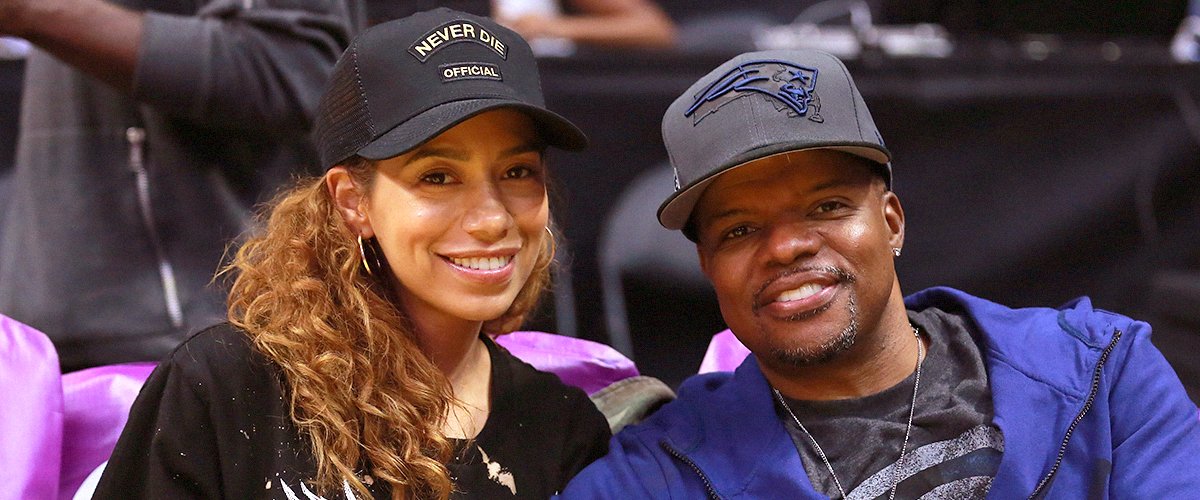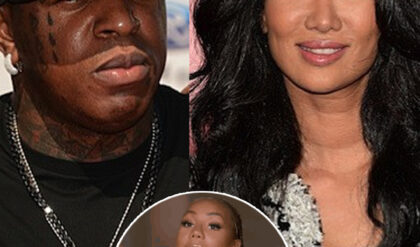Ricky Bell Reveals the Truth About Bell Biv DeVoe’s Rise, Fall, and Comeback
Bell Biv DeVoe (BBD) was never meant to be just another side project from New Edition. Instead, it became a pioneering force in R&B, blending hip-hop and New Jack Swing in a way no one had seen before. But behind the flashy suits, chart-topping hits, and electrifying performances, there was a darker reality—a battle with industry politics, financial struggles, and personal demons.

For years, fans have speculated about why Bell Biv DeVoe struggled to maintain their success after their explosive debut. Now, Ricky Bell is finally speaking out, shedding light on what really happened to the group and how they managed to make a stunning comeback against all odds.
BBD: A Survival Move, Not a Side Project
Most people assume Bell Biv DeVoe was just a temporary spin-off of New Edition, created while the group took a break. But the truth is, BBD was born out of necessity, not convenience.
By the late 1980s, New Edition was in chaos:
Bobby Brown had been kicked out for being too wild.
Ralph Tresvant was flirting with the idea of a solo career.
Johnny Gill had been brought in to replace Bobby, shifting the group’s musical direction.
Meanwhile, Ricky Bell, Michael Bivins, and Ronnie DeVoe were left uncertain about their future. They weren’t given the lead vocal opportunities that Ralph and Johnny had, and the label wasn’t prioritizing them.
That’s when producers Jimmy Jam and Terry Lewis came up with a bold idea—take the three of them and create an entirely new sound that blended R&B with hip-hop, something no group had done before. Instead of trying to compete vocally with Ralph and Johnny, BBD focused on energy, swag, and attitude.

Then, in 1990, they dropped “Poison,” and everything changed.
The Meteoric Rise of Bell Biv DeVoe
“Poison” wasn’t just a hit—it was a cultural movement. With its infectious beat and bold energy, the song dominated radio and MTV, selling over 4 million copies and turning BBD into one of the biggest acts in music.
Their debut album, “Poison,” produced five hit singles and cemented them as a powerhouse of the New Jack Swing era. For a moment, it seemed like BBD had completely redefined R&B, proving they could thrive without New Edition.
But behind the scenes, the music industry wasn’t fully on board with BBD’s success.
Executives initially doubted them, thinking their mix of rap and R&B wouldn’t sell.
They weren’t treated like traditional R&B artists, which limited their radio play.
Critics dismissed them as a trend, predicting their sound wouldn’t last.
Despite the odds stacked against them, Bell Biv DeVoe kept pushing forward—until everything started falling apart.
The Fall: Industry Politics and Personal Struggles

After the success of their debut album, BBD faced enormous pressure to replicate their success. Their label rushed them to release a second album, “Hootie Mack,” in 1993.
But there were major problems:
The album felt rushed and didn’t have the same magic as “Poison.”
Radio stations and record executives had already started moving away from New Jack Swing.
Marketing support from their label was significantly lower than before.
The result? While “Hootie Mack” performed decently, it was nowhere near the impact of their debut.
At the same time, Ricky Bell’s personal life was spiraling.
The stress of fading success and industry pressure led him to drug addiction.
He was spending thousands a week on his habit.
At one point, he was completely broke, despite selling millions of records.
Meanwhile, the music industry had moved on. By the mid-90s, New Jack Swing was fading, and artists like Boyz II Men, Jodeci, and 2Pac were dominating the charts.
BBD, who had once been at the cutting edge of R&B, suddenly found themselves struggling to stay relevant. The industry, which had once profited off them, no longer had use for them.
The Breaking Point and Ricky Bell’s Rock Bottom
For years, Ricky hid his addiction, pretending everything was fine. But behind closed doors, he was spiraling out of control.
He had lost almost all his money due to bad financial decisions.
His marriage was falling apart.
At his worst, he felt like giving up entirely.
It wasn’t until his wife, Amy Correa Bell, gave him an ultimatum—get help or lose everything—that he finally went to rehab and turned his life around.
The Comeback No One Saw Coming
While Ricky was getting clean and rebuilding his life, Bell Biv DeVoe faced a tough decision—fade into obscurity or fight for a second chance.
They chose the latter.
They embraced their legacy, realizing that their fans had never left.
Instead of chasing trends, they focused on performing live, reconnecting with their audience.
In 2017, they dropped “Three Stripes,” their first album in 16 years—and it debuted at #1 on iTunes R&B charts.
At the same time, the BET biopic “The New Edition Story” reignited interest in their music. The film drew over 29 million viewers, reminding the world just how influential BBD had been.
The Legacy That Lives On
Today, Bell Biv DeVoe is still performing, selling out shows and proving that real talent never fades.
They are recognized as pioneers of blending hip-hop and R&B.
“Poison” remains a timeless anthem, still played at clubs and parties worldwide.
Ricky Bell’s honest discussions about addiction and recovery have inspired countless fans.
The music industry tried to forget them, but BBD refused to disappear. They fought through the rise, fall, and hardships—and in the end, they came out stronger than ever.
Their story isn’t just about music—it’s about resilience, survival, and the power of never giving up.





